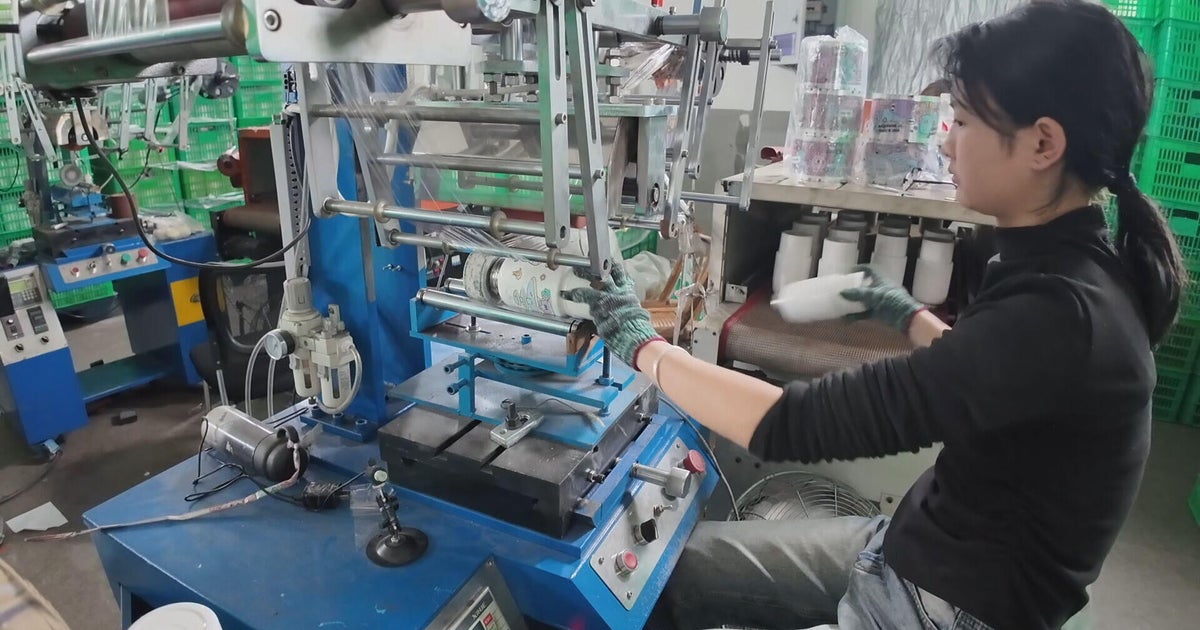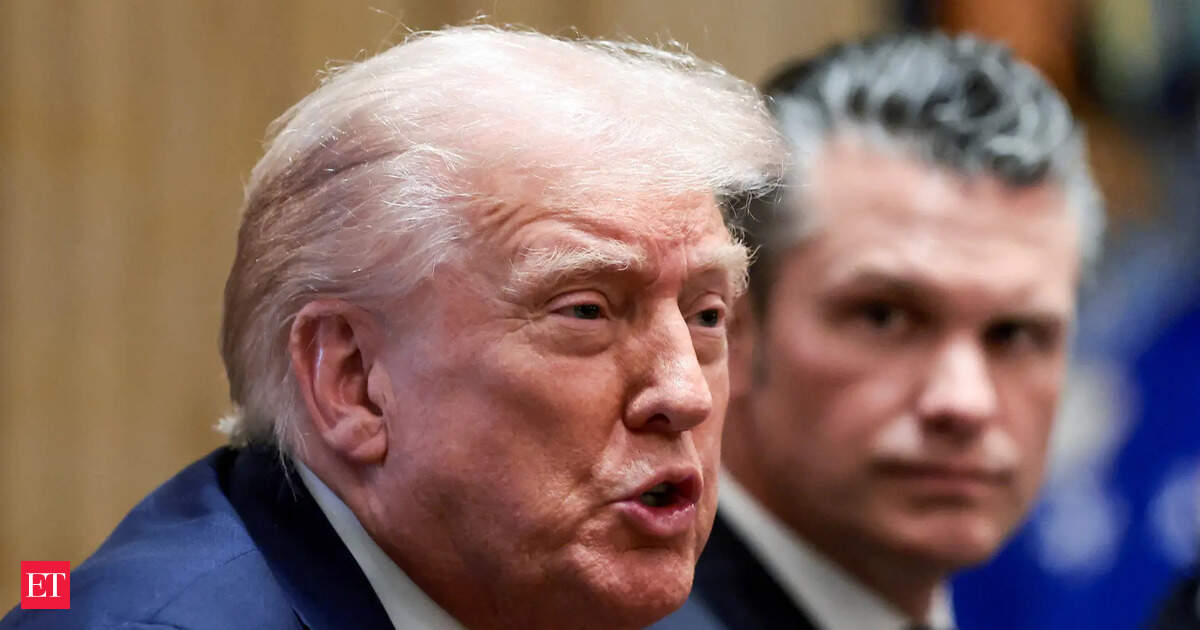Zhejiang, China — Smartly dressed, 42-year-old businessman Qian Weiguang gets out of his black Mercedes van, eager to check on the status of operations. He’s just driven an hour from his showroom and is keen to show our CBS News team his newest factory — one of three he has in a sprawling industrial area outside the city of Yiwu in China’s central Zhejiang province.
The region is one of, if not the largest manufacturing hub for small items in the world, cranking out everything from artificial flowers and kitchen units to hair accessories and car engine parts. Buyers from across the globe descend on the city of 2 million to source products, place orders and arrange for goods to be exported to their home countries.
Qian’s main business is producing insulated water bottles and coffee cups, as well as artificial Christmas trees and party supplies. He started in 2002, a year after China officially joined the World Trade Organization. While his focus was initially the Chinese domestic market, he started exporting after about five years, and he hasn’t looked back since.
His products are sold around the world, with the United States making up a quarter of his market and Walmart being one of his largest U.S. customers. But that is about to change.
Trump’s tariffs bite
The future of Qian’s business is less certain than ever thanks to the U.S.-China trade war. The tit-for-tat tariffs being levied by the world’s two largest economies have thrown a strategic competitive relationship into havoc. It intensified sharply last month when President Trump increased his blanket tariffs on Chinese imports to a total of 20%.
“We are the manufacturers, it will hurt us for sure. But it’s ordinary customers in the U.S. who will pay for this,” said Qian. “If I’m the only person to absorb the tariff, I will have to shut down my business.”
Qian said orders from U.S. customers since Mr. Trump took office for his second term had slowed down significantly.
“For now, all the clients are waiting. There are too many uncertainties, so we are also waiting. Of course I’m worried, but I can’t just sit here and do nothing. I can either reduce production or I look for new markets to absorb our surplus. That’s what I think we will have to do.”
Qian said he was already looking to expand into new markets in Europe and the Middle East, and that a recent trip to Dubai had opened up some promising leads. He said he’d also look to Africa and South America if the trade war continues intensifying with the U.S. — and he thinks it will.
“I think it will continue to escalate. This trade war depends on how negotiations between China and the U.S. go. As a businessman, I can’t talk about politics. All I know is that a trade war will harm both sides.”
Was the trade war inevitable, and will it get worse?
There are some who believe the United States and China have been on an economic collision course for a very long time.
American academic Michael Pettis, a senior fellow at the Carnegie Endowment for International Peace, invited us into the courtyard of his home in an old Beijing neighborhood. He’s lived in China for 23 years, and currently teaches finance at Peking University.
Pettis has written seven books, and his latest, “Trade Wars are Class Wars,” has been quoted by members of the Trump administration, including Vice President JD Vance.
“People have argued that both administrations have read it,” he told CBS News. “I don’t think it says anything particularly new; just reminding people of stuff we used to know which we seem to have forgotten in the last 30-40 years about trade and trade imbalances.”
Pettis believes the U.S.-China trade war was inevitable due to global trade imbalances, and that it has been just waiting to happen since 2008 or 2009. China has the world’s largest trade surplus, amounting to almost $1 trillion last year, according to Statista.
The U.S., on the other hand, has the world’s largest trade deficit. In other words, China produces and the rest of the world consumes — and the U.S. consumes the lion’s share of what China is making.
“There is a recognition that the global trading system is broken in some very fundamental way, and these [imbalances] have to be resolved, and they will be, one way or another,” Pettis told CBS News. “The only question is are they resolved in a bad way, or a less bad way. But it is going to get difficult.”
Many economists don’t consider trade deficits inherently bad for a country’s economy. The kind of strong consumer demand that has fueled the U.S. deficit is often even considered a sign of economic strength. But President Trump has long claimed the U.S. trade imbalance with China shows Beijing is unfairly taking advantage, to the detriment of American workers and industries.
While some analysts believe China is better positioned now to weather a trade war with the U.S. than it was during Mr. Trump’s first term, Pettis said Beijing remains fundamentally vulnerable due to the combination of its enormous trade surplus and its lack of domestic consumption.
“There is no way of sugar-coating it. A rebalancing of global trade would be terrible for the world’s biggest trade surplus country, China. It’s most vulnerable to a contraction in trade. China’s great strength in manufacturing competitiveness is simply the flipside of its very weak domestic demand.”
Asked where he sees this heading and whether President Trump might get his “deal of the century” with President Xi Jinping, Pettis wasn’t overly optimistic.
“Honestly, what the U.S. needs is so much the polar opposite of what China needs that I’m not sure there can be a meaningful deal there,” he said. “I believe that until the big imbalances are resolved, I don’t see any way for this not to get worse.”


